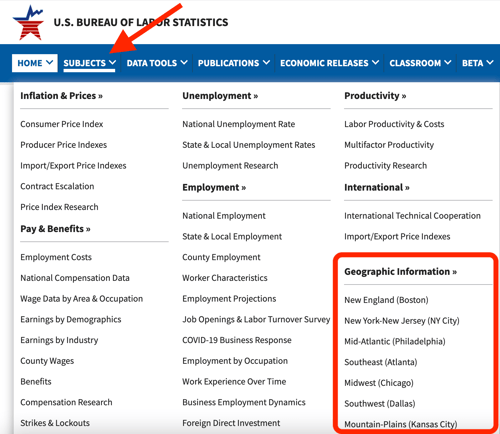 Crayon's Product Marketing Spotlight is an interview series where we chat with product marketers to get a glimpse into their careers and gain unique insight into product marketing strategy. In this edition of the Product Marketing Spotlight Series, we shine the light on Mitchell Comstock of LeadIQ.
Crayon's Product Marketing Spotlight is an interview series where we chat with product marketers to get a glimpse into their careers and gain unique insight into product marketing strategy. In this edition of the Product Marketing Spotlight Series, we shine the light on Mitchell Comstock of LeadIQ.
Mackenzie: What is your job title and the main responsibilities in your role?
Mitchell: Product Marketing Manager at LeadIQ. My main areas of focus are planning and executing our go-to-market strategy for new features and products, competitive intelligence, building product messaging, and sales enablement. Currently, I am our sole product marketing person.
Mackenzie: What does your company do?
Mitchell: LeadIQ helps make sales teams faster and more productive without sacrificing your CRM’s data hygiene. Modern sellers are researching and discovering new prospects on the web every day but only spend 1/4 of the time prospecting them. Used by over 20,000 sales professionals, LeadIQ removes bottlenecks in the outbound selling process by automating the most tedious and repetitive tasks, saving the average sales rep six hours a week prospecting.
Mackenzie: Did you always want to be in product marketing? Tell me about your career path and what led you to where you are now.
Mitchell: I didn’t even know product marketing was a thing back when I graduated college back in 2013! I went to school to become a high school social studies teacher but fell into marketing after having trouble finding a job.
I was lucky enough to find two great mentors early on in the PMM and marketing strategy space. As my career progressed I slowly started taking on more and more of a product marketing role until I was eventually given the title because I was doing just about everything a PMM does.
Now I am unsure if I can see myself doing anything other than product marketing! Every day is different and brings a new challenge which I love and I really enjoy getting to work closely with so many teams.
Mackenzie: What characteristics make for a successful product marketer?
Mitchell: Product marketing is such an interesting role because of the wide breadth of responsibilities you have. I feel like to be truly successful you need to be flexible and comfortable in a fast-paced environment. One day you can be writing product one-pagers while the next you are leading a pricing committee on how to package a new product.
Communication skills are also big for product marketers. PMMs are the pivot point between product, sales, and marketing. When you are working with all of these groups, it can be difficult at times to make sure everyone gets exactly what they need and is on the same page. Your product manager will care about completely different information than your digital marketer, but they both need to be in the loop for things like a product launch.
The best product marketers are the ones that can take really complicated products and features and boil it down into simple messaging. It’s tough and something that I am constantly working on but our job in product marketing is to bring clarity to your industry, to your customers, and to your internal teams.
Mackenzie: How do you measure product marketing success?
Mitchell: This is the million-dollar question isn’t it? Product marketing has so many varied responsibilities that it is really difficult to attribute hard numbers to success. There are a lot of success metrics that are influenced by product marketing but few that we have direct control over.
I think measuring success also depends on the size and maturity of your product marketing team. Sole PMMs like myself will have different OKRs than those in a larger, more mature PMM team.
For me, there are two OKRs that I am always tracking:
- Customer interviews - I set a number of interviews with customers, prospects, and industry experts I want to conduct in the quarter
- Sales confidence score - Usually done in a quick survey but this points to how well I am enabling my sales team
Mackenzie: How much of your day-to-day involves competitive intelligence (CI)?
Mitchell: Every day is different but I usually have at least one or two direct competitive intelligence tasks I am doing such as sales training, updating battlecards, or checking competitors' websites and social posts.
Beyond those direct tasks, competitive intelligence is one of the building blocks for everything I do. From our go-to-market plan to how we message our products it’s all done in the context of our industry and competitive landscape.
When you can pair a good understanding of the competitive landscape with your customers' voice, you have the recipe for really successful product marketing. It’s definitely easier said than done though!
Mackenzie: Where do you see the CI industry heading over the next 5-10 years?
Mitchell: This is a great question. From a strategy perspective, I am expecting to see more and more companies investing in CI headcount early on. As someone who has spent the last couple of years in SaaS startups, I think it will be really interesting to see if there is an uptick in PMM job postings for early-stage startups as founders see the importance of clear messaging and positioning from the get-go.
From a technology standpoint, I am closely following what the next evolution of solutions like Crayon are. Most immediately I think there are ways to pull in CRM data to better inform competitive materials such as win/loss rates. Having this hard data to help identify what types of deals we are more likely to win and lose can give PMMs like myself insight into what is working and what needs work.
Mackenzie: Are there any programs or resources that you have found to be especially helpful throughout your career?
Mitchell: The Product Marketing Alliance is a great overall resource. Subscribe to their blog, join their Slack channel, and participate in the community! There is so much that goes into product marketing and everyone who does it has different experiences. I have found that having someone or a group that you can bounce ideas off of and learn from is invaluable during your first couple years in product marketing.
My other suggestion is to find a few companies that you think do product marketing really well, even if they aren’t in your space. I like to keep an eye on companies like Stripe and Zendesk who I feel do a really good job in their messaging and positioning. Seeing other companies' examples can help provide inspiration when you find yourself stuck or are looking for new ideas.
Mackenzie: If you weren’t a PMM, what would you be and why?
Mitchell: Well like I said I was on the path to becoming a high school teacher before fate (and a bad job market) interrupted that journey.
But I think if I could choose any job, I would be a baseball coach. I played in college and after school coached youth teams for 8 years. I love being around the game and working with kids. There is nothing more rewarding than seeing a player learn and grow both on the field and off.

Related Blog Posts
Popular Posts
-
 How to Create a Competitive Matrix (Step-by-Step Guide With Examples + Free Templates)
How to Create a Competitive Matrix (Step-by-Step Guide With Examples + Free Templates)
-
 Sales Battlecards 101: How to Help Your Sellers Leave the Competition In the Dust
Sales Battlecards 101: How to Help Your Sellers Leave the Competition In the Dust
-
 The 8 Free Market Research Tools and Resources You Need to Know
The 8 Free Market Research Tools and Resources You Need to Know
-
 6 Competitive Advantage Examples From the Real World
6 Competitive Advantage Examples From the Real World
-
 How to Measure Product Launch Success: 12 KPIs You Should Be Tracking
How to Measure Product Launch Success: 12 KPIs You Should Be Tracking





%20(1).png?width=500&name=CI%20Strategy-CI%20Audit%20(1)%20(1).png)